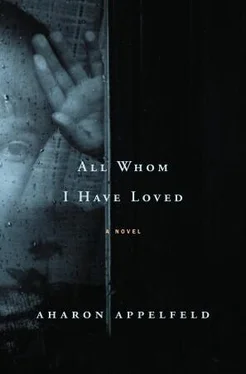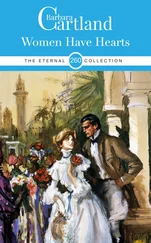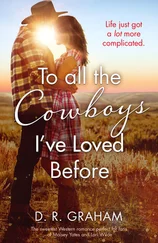One of the drunks on the train buttonholed Father and told him about his wife and his daughters, who he said were cheating on him and stealing his money. Father listened and asked some questions. The drunk then told him at great length how his wife was deceiving him, being unfaithful, and how his daughters had gone astray. “I'll kill them, you know. I really will. I'll kill them at the very first opportunity! True, you can be hung for a murder, but I'm not afraid.”
Father passed him the flask, and the man took a long gulp and blessed him. Although I could speak only a bit of Ruthenian, I understood the language. It is a language that has the scent of a corn-flour pie filled with plums. When Halina spoke Ruthenian, her face lit up and she laughed.
Near Czernowitz, Father fell asleep. It had been a long time since I had seen him sleep. When he slept, the pain surfaced. For years he'd struggled with people who embittered his life, and although he was tall and strong, they seemed to get the better of him. People didn't hate Mother. Mother was full of charm and closer to people. There were two art critics in Czernowitz who were particularly unpleasant to Father. Once, on one of our walks, he had pointed them out to me. He had said, “Those two are murderers.” They hadn't seemed like murderers to me, but like two people innocently taking a walk. I had asked Father about this. He had explained and explained it, and then I understood for the first time how hard it was for him to speak of it, and that I shouldn't make it harder with more questions.
Once, he had pointed them out to me in a café and said, “God is dead in their hearts.” I had wanted to ask him about this but didn't. His face had been dark and his jaw clenched in anger.
Then Father awoke and asked, “You're not asleep? We'll be reaching Czernowitz in a little while, and we'll take a walk.” He loved long walks. I often wandered around the streets and the banks of the Prut with him. On these walks, his anger would subside and his face would soften. Sometimes he would stop, shade his eyes, and stare for a long time. I liked it when he did this.
It was already dark when we reached Czernowitz. I remembered the railway station from the summer vacation with Mother. Now it was empty and neglected. Everyone was hurrying to leave, and so were we. At first it seemed that we were going to get on the tram, but then Father changed his mind and said, “Just one drink and then we'll carry on.”
As soon as he was inside the tavern, he gulped down one drink and then another one, embraced the waitress, and gave her a kiss. In this dim hall, filled with tobacco smoke, cognac, and beer, Father's face lit up and he talked in full sentences. People questioned him, joked around, and stared at me. Father introduced me. “Paul is nine, and he's already learning algebra; he reads and writes German and understands French.”
It was a spacious hall, filled with long trestle tables. Everyone was speaking Ruthenian, spiced with bits of Romanian and German. I understood only a few confused words. Father wanted to please me and took a bar of chocolate from his coat pocket. We sat there until I got dizzy and fell asleep.
When I awoke, I was already in Father's arms on the way to the tram. On the tram, Father ran into an acquaintance and told him that he had just arrived from Storozynetz and was on his way home. The man looked at me and chuckled. In his small eyes there was a malicious look that frightened me. Father is never afraid after a few drinks. I've noticed how he's a different person, alert and full of witty sayings that amuse people so much that they laugh till the tears run down their cheeks.
Father's house was one long room, with the toilet outside. He lived on the outskirts of the city in the home of a Ruthenian peasant. The room was full of books and was not tidy. There were even clothes and books piled on the windowsill. Father poured me a glass of milk and made me a sandwich. I saw how carefully his large hands held the round bread. He sat near me, and I felt that he wanted to tell me something. But I was wrong, of course. After an hour of ease, the gloom returned. When the gloominess descends on his face, he shrinks in an instant, and sits and stares.
“Father,” I called.
“What?”
“Can I have another sandwich?” I knew that asking him would make him happy, and he immediately went to prepare it for me. After he gave me the sandwich, he opened a book and began studying it.
“Halina,” I called in a whisper, “now that the murderer's been sent to the gallows, there's nothing to fear. You can come down to me. I'm in Father's room, and I feel very alone.”
The next day, Father left for his high school and I stayed alone in the room. In the daylight, it looked narrow and sooty. I opened the window and my eyes widened: the huge river, the River Prut, flowed right outside the house. I was so delighted that from sheer happiness I ran outside. Halina had told me so much about the Prut. I hadn't imagined that it could be so powerful. I stood on the bank and didn't dare touch the water.
The landlord saw me and asked, “Who are you?”
I told him my name.
He looked at me, smiled, and said, “It's you.” Father must have told him that I was coming.
The river was surging, its waves breaking against the banks. It was frighteningly wide, but I overcame my fear and stayed where I was. Once, Halina told me, “You mustn't be afraid.” I try to do everything she told me.
I wrapped my coat around me and sat gazing at the flowing river. Father had left me sandwiches, fruit, and a small bar of chocolate. Whenever I got hungry, I went back to the room, nibbled at something, and returned to the river.
It's strange — yesterday I was in Storozynetz and here I am today. Did Mother also see me, just as I saw her now? Mother taught in her school, and in the afternoons she went to André. At night they lay naked in bed, embracing and kissing. This thought came back to me again and again and drove me crazy. I tried to push it out of me.
Suddenly, I saw Mother standing as she stood when Father took me away with him, her face swollen and a cry of fear frozen on her lips. I immediately swore to myself that as soon as I grew up I would go and rescue her from that blond thug. This thought so stirred me that I left the Prut and went inside.
The light grew colder, and snowflakes drifted down in the wind and melted as they landed. Last night, with absolute clarity, I saw Halina borne aloft on the wings of angels. It was a peaceful, blue sight. When she saw me, she called out with a mischievous smile, “Why don't you visit me in the chapel? I'm there most of the day.” I remembered her once telling me that, through prayer, we can change everything. If we are fated to die, prayer can cancel the decree.
“If prayer is so strong, why don't people pray?” I asked.
“They don't know its power; if they knew, they would pray.” She spoke not only of prayer but of God as well. “If man believes in God, God dwells within him and no harm can befall him.”
“I don't understand, Halina.”
“Through prayer we are connected to Him; the trees and the birds are also connected to Him.”
“God is everything,” I said.
Halina was so amazed at what I said, she hugged me and kissed me and would not stop till she had said, “I'll gobble you all up and there'll be nothing left of you!”
It was always hard to guess what Father was thinking. Sometimes it seemed that he talked only with God, but there were days when I sensed that he was not connected to anyone, not even to God, and that he lived by himself, all alone, and no one knew his secret.
And so I sat and gazed at the waters of the Prut, and it occurred to me that if everything was connected to God, the Prut was also connected to Him, so there was nothing to fear from it.
Читать дальше












